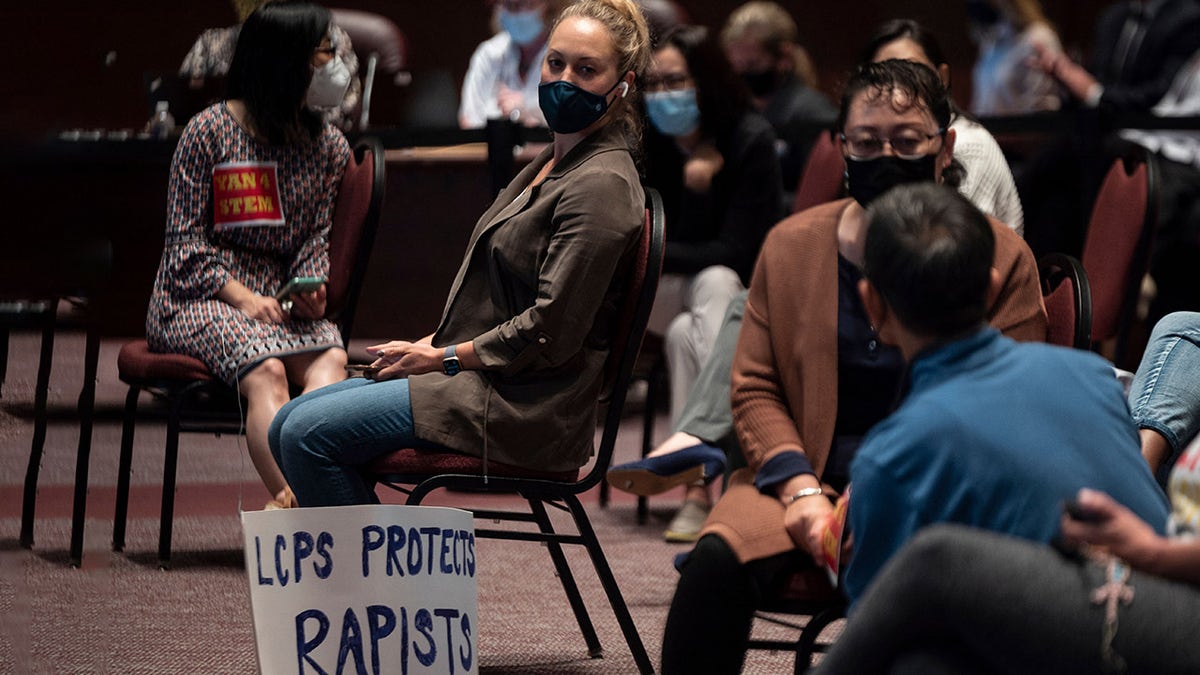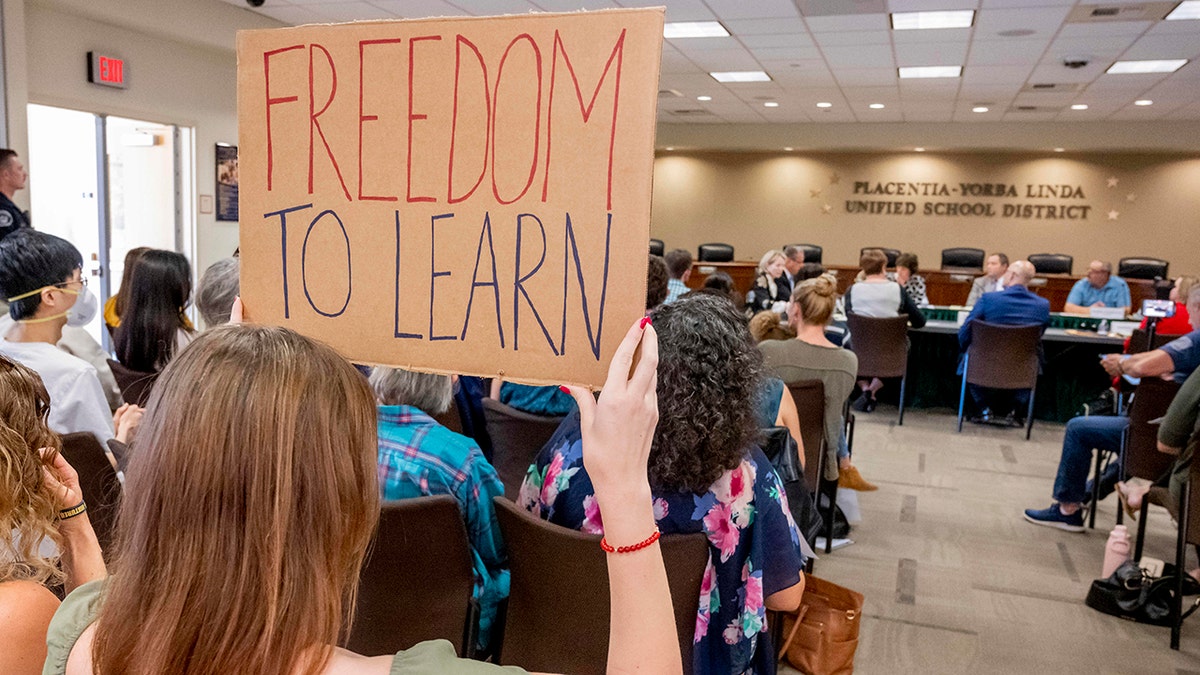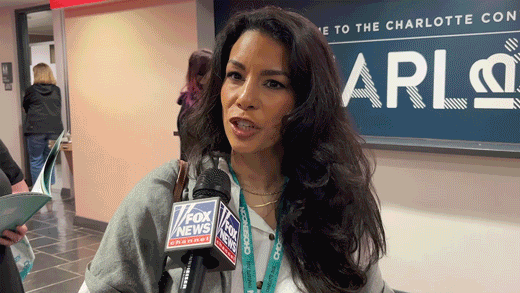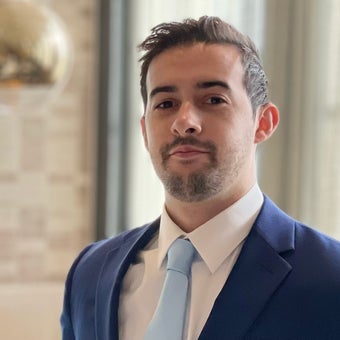Idaho school board shuts down concerned parents on transgender locker room policy
Caldwell School District mom Brittany Gish, her daughter Gianna and Idaho State GOP Sen. Chris Trakel express outrage over a proposed policy that allows biological boys in girls' locker rooms.
Governing bodies of schools across America are "restricting" and "halting" public comment amid conflicts with impassioned parents, worrying lawmakers and free speech advocates, according to a new report.
Earlier this month, a school board meeting in Greeley, Colo., began with another revision of public comment policies, limiting citizens’ opportunities to address the board down to two minutes.
This was the fourth revision in the last year, with each iteration lowering speaker times, according to the Washington Post.
In September, a woman at the board meeting read a passage from Tom Morrison’s "The Bluest Eye," a book found in her kids’ school library, which describes a father raping his daughter.

A woman sits with her sign during a Loudoun County Public Schools (LCPS) board meeting in Ashburn, Virginia on October 12, 2021. (ANDREW CABALLERO-REYNOLDS/AFP via Getty Images)
The school superintendent claimed the woman was attempting to "horrify" the audience. A board member pushed for public comment to be suspended. The board’s president said this call was not seriously considered but admitted they had consulted with lawyers to survey their constitutional protections.
Similar situations across the country have prompted a range of voices to consider the line between free speech and verbal or physical threats. Some legal experts and law lawmakers are skirting free speech and are engaging in unconstitutional practices with "thin-skinned" overreactions.
They note that while some limitations on public comment may not be a free speech violation, they break from American values of allowing taxpayers to hold representatives they elected accountable.
"Access to public meetings and that face-to-face, whether virtual or in-person, opportunity for the citizenry to talk to their elected officials is foundational to our democracy," ACLU Massachusetts executive director Carol Rose told The Post.
PARENTS STAND UP TO 'CULT' LOUDOUN COUNTY SCHOOL BOARD OVER TRANSGENDER STUDENT POLICY

A student holds up a sign against banning CRT holds up a sign as members of the Placentia-Yorba Linda Unified School Board meet in Placentia. (Photo by Leonard Ortiz/MediaNews Group/Orange County Register via Getty Images)
She recently filed a brief, heard by the state Supreme Court, which emerged from a 2018 meeting. During the meeting, a resident claimed the board had violated open meeting laws, and when public comment was suspended, called the chair a "Hitler." The town said their decision was reasonable to maintain public order.
The increased interest in local politics by parents has led some to engage in slander, verbal attacks, and in some rare cases, physical altercations.
Such incidents have seen a clampdown on public discourse by government bodies.
In 2021, an Indiana school board ended public comment after a series of heated arguments, including an incident where a gun fell onto the floor from an audience member’s pocket. Later, state lawmakers overwhelmingly passed a bill that barred boards from banning public discourse.
Schools must now allow oral public comments and are permitted to take "reasonable steps" to keep the peace.
DESANTIS-BACKED SCHOOL BOARDS ARE ALREADY MAKING HUGE CHANGES IN FLORIDA
Legal experts also noted mixed guidance from a variety of governing bodies. The Supreme Court has reaffirmed the rights of Americans to publicly criticize their officials but can impose limits on speaking time and topics.
Parents have grown increasingly impatient over controversial materials. Just days ago, the Caldwell School District in Idaho abruptly ended a board meeting after parents objected to a new policy that would allow biological boys to use girls’ bathrooms and locker rooms.
CLICK HERE TO GET THE FOX NEWS APP
On the other side of the aisle, many school boards have asserted they are committed to open discourse between themselves and the public but have concerns about the vagueness of court rulings on "policing" rude comments and general decorum.
Others have said that allowing people to speak without barrier is "poisoning" meetings" and "thwarting" honest discussion.












































